Abstract
We assessed the clinical outcome of pregnancies with non-Rh-D antibody in Northern Ireland using retrospective case note review. During the study period (April 1999- March 2000) 186 women with clinically significant antibodies were identified from the records of the antenatal laboratory of the Northern Ireland Blood Transfusion Service. Eighty-five women were included in the study using the criteria mentioned above. None of the fetuses required intrauterine transfusion during this period. One baby required exchange transfusion, three were given top-up transfusions and 17 had phototherapy. Nine babies with a positive direct antiglobulin test (DAT) received no treatment. The incidence of anti-Kell could be reduced by transfusing Kell negative red cells to premenopausal women. It is important that all pregnant women are tested at least twice in their pregnancy to detect the antibodies formed late in the pregnancy. It is useful to formulate a standard protocol for antenatal interventions. Non Rh-D antibodies can cause significant anaemia for up to six weeks in the neonatal period, hence early detection of maternal antibodies is important so that the neonates are followed up for an appropriate length of time.
Full text
PDF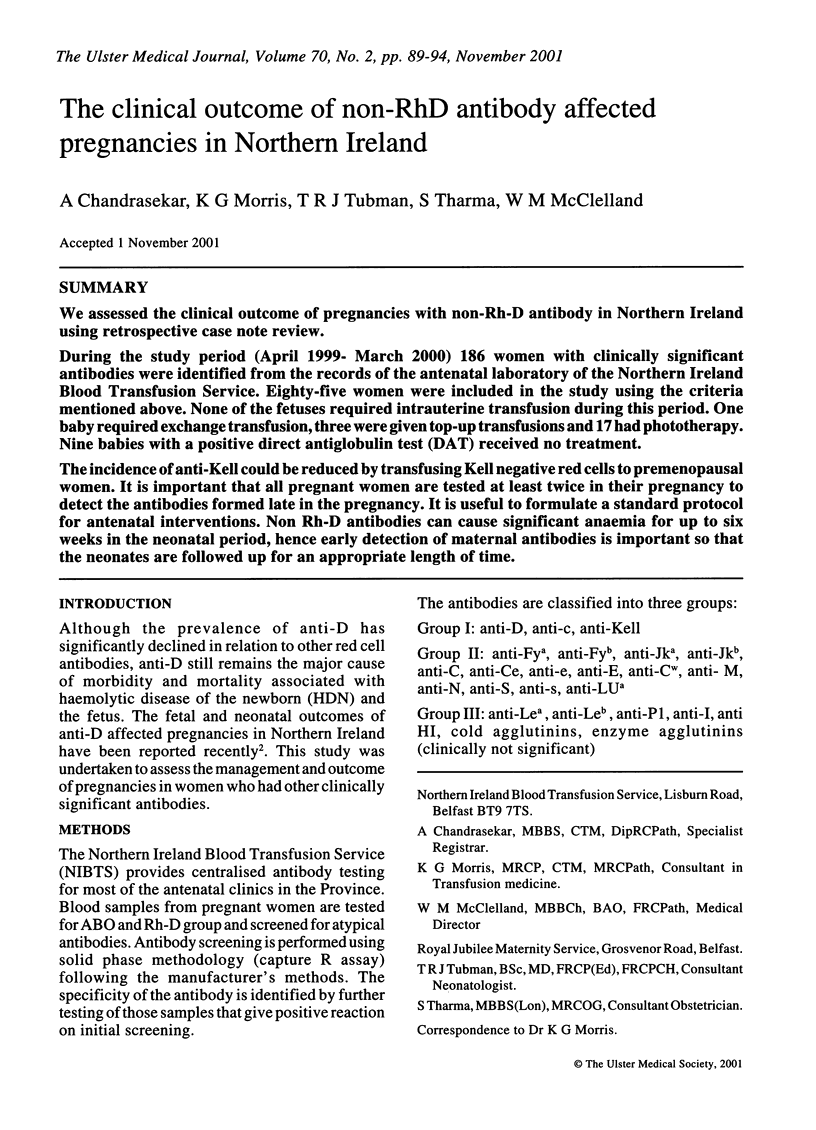
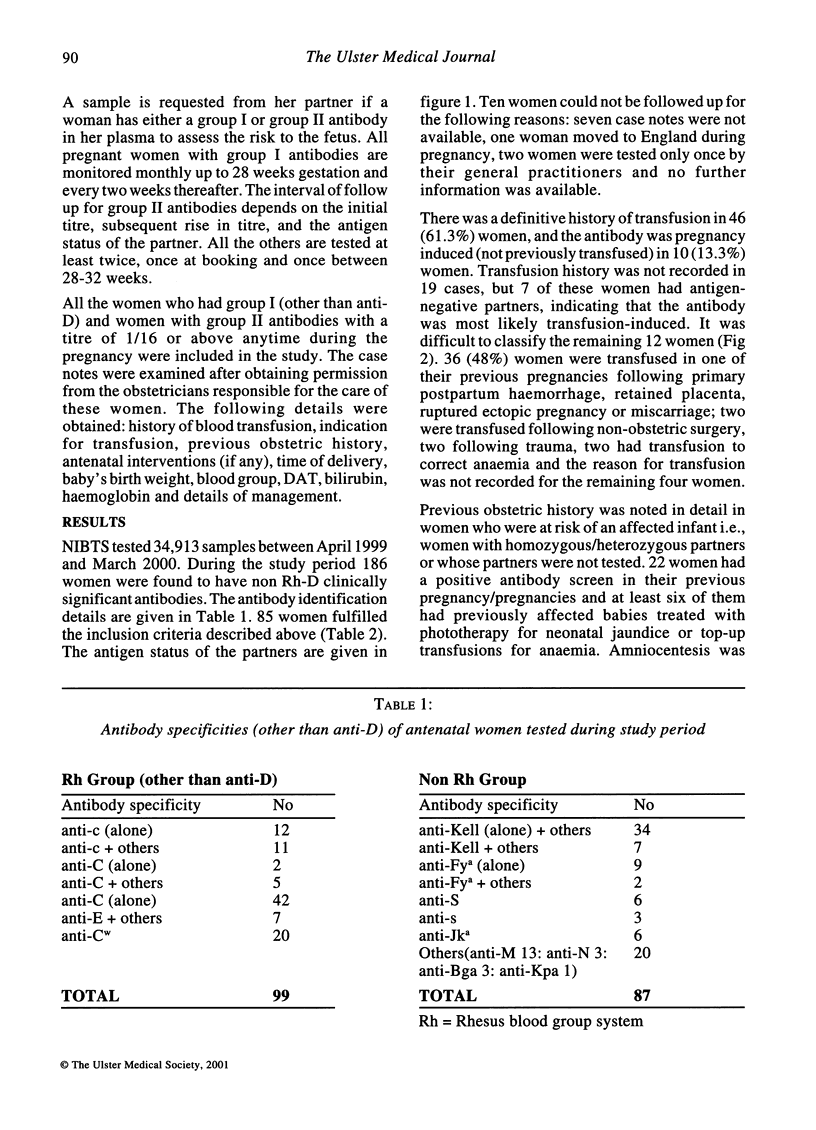
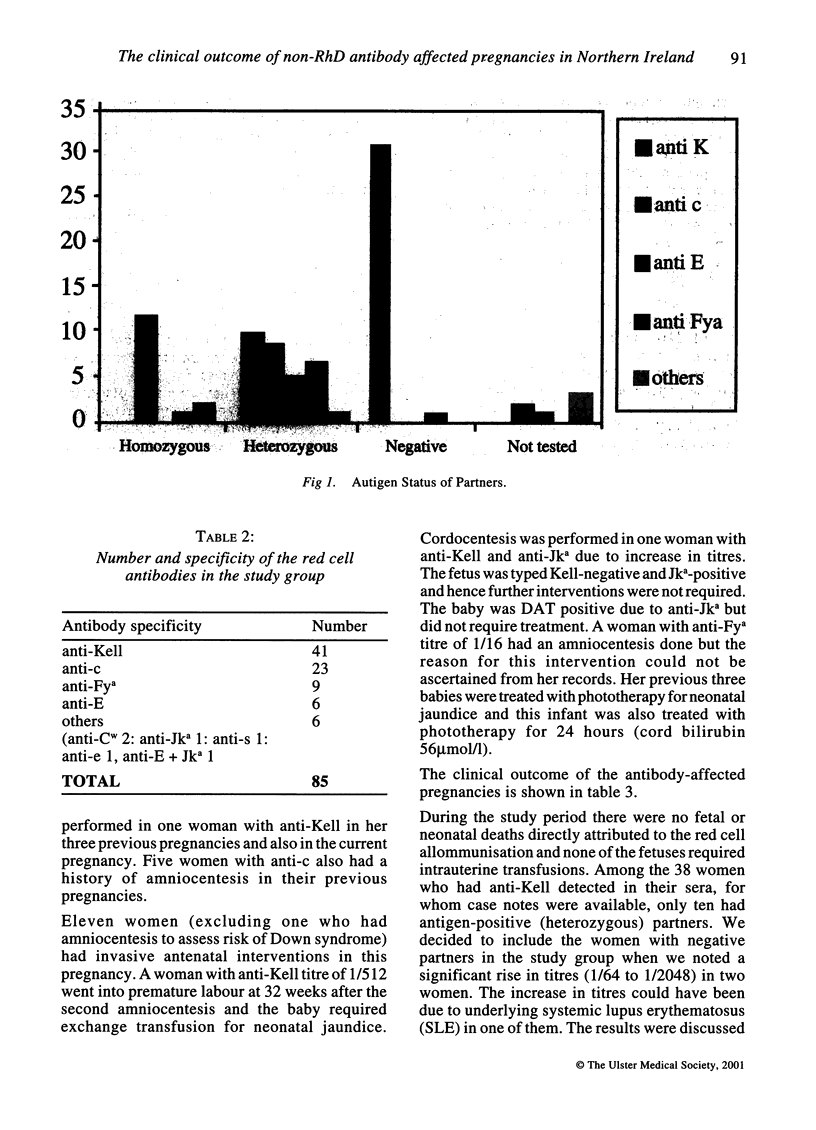
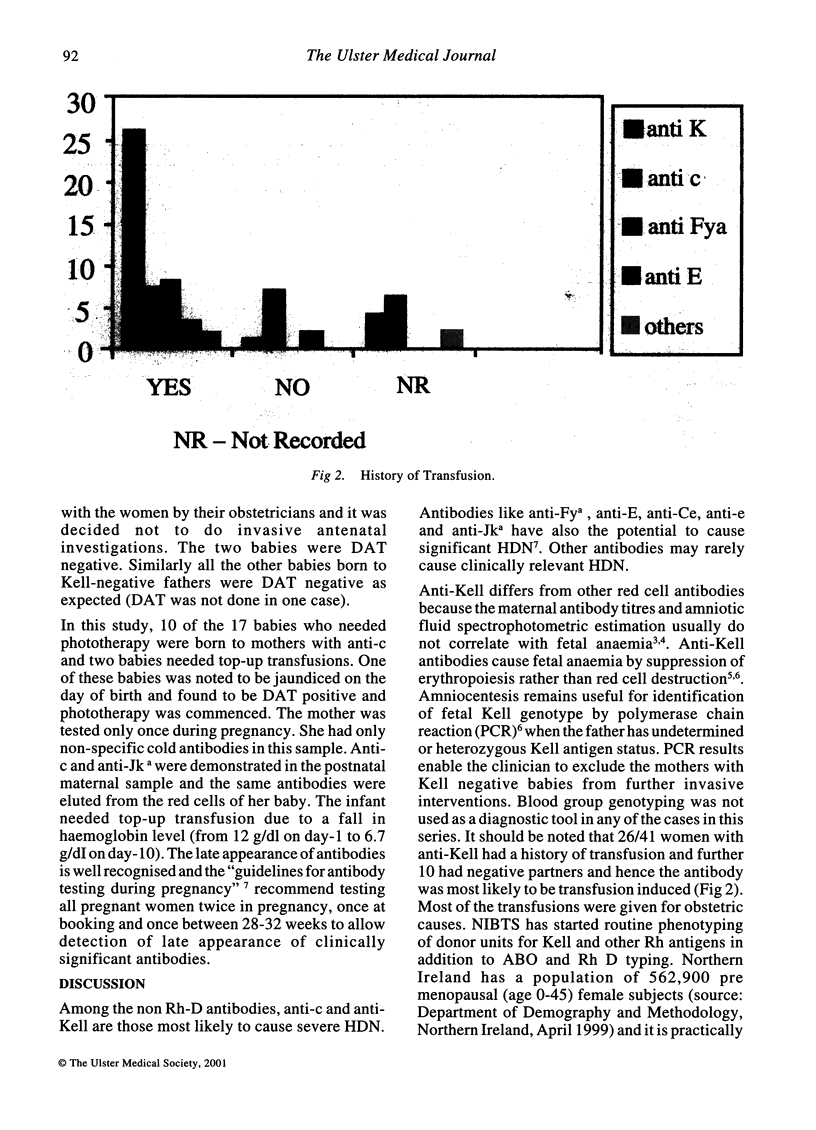
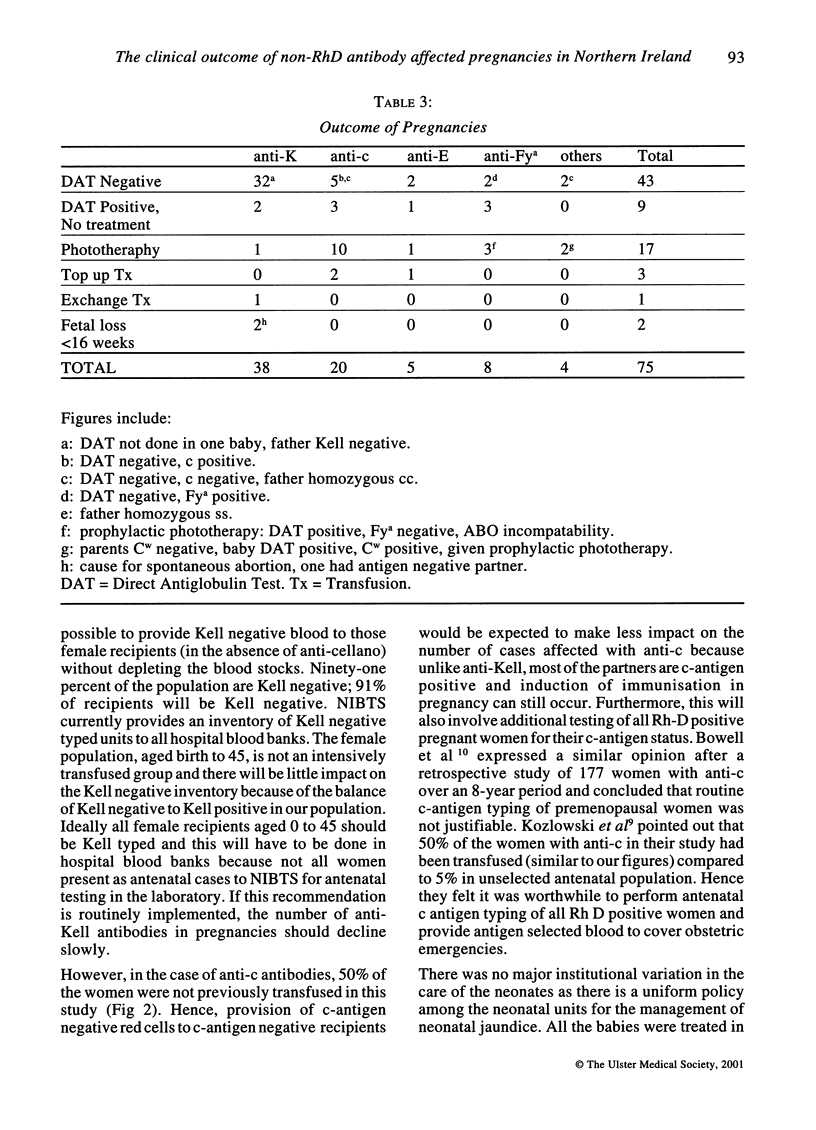
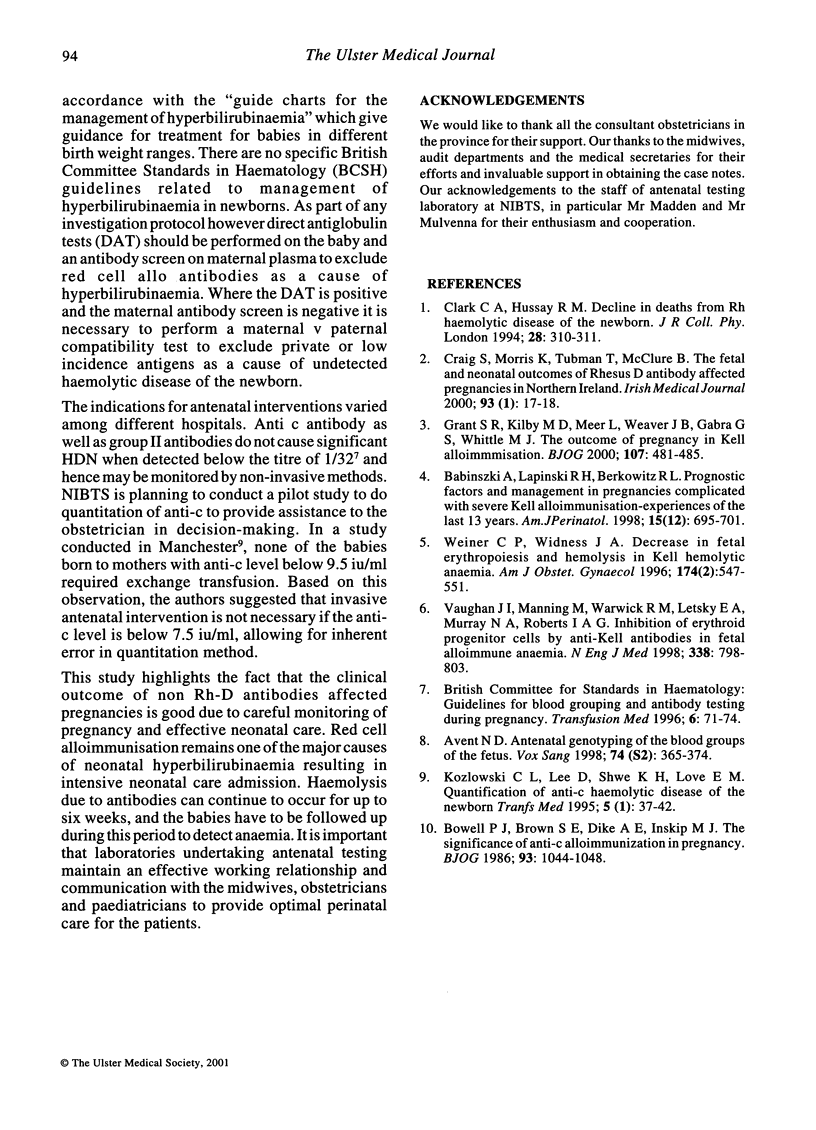
Selected References
These references are in PubMed. This may not be the complete list of references from this article.
- Avent N. D. Antenatal genotyping of the blood groups of the fetus. Vox Sang. 1998;74 (Suppl 2):365–374. doi: 10.1111/j.1423-0410.1998.tb05444.x. [DOI] [PubMed] [Google Scholar]
- Babinszki A., Lapinski R. H., Berkowitz R. L. Prognostic factors and management in pregnancies complicated with severe kell alloimmunization: experiences of the last 13 years. Am J Perinatol. 1998;15(12):695–701. doi: 10.1055/s-2007-999304. [DOI] [PubMed] [Google Scholar]
- Bowell P. J., Brown S. E., Dike A. E., Inskip M. J. The significance of anti-c alloimmunization in pregnancy. Br J Obstet Gynaecol. 1986 Oct;93(10):1044–1048. doi: 10.1111/j.1471-0528.1986.tb07829.x. [DOI] [PubMed] [Google Scholar]
- Craig S., Morris K., Tubman T., McClure B. The fetal and neonatal outcomes of Rhesus D antibody affected pregnancies in Northern Ireland. Ir Med J. 2000 Jan-Feb;93(1):17–18. [PubMed] [Google Scholar]
- Grant S. R., Kilby M. D., Meer L., Weaver J. B., Gabra G. S., Whittle M. J. The outcome of pregnancy in Kell alloimmunisation. BJOG. 2000 Apr;107(4):481–485. doi: 10.1111/j.1471-0528.2000.tb13266.x. [DOI] [PubMed] [Google Scholar]
- Kozlowski C. L., Lee D., Shwe K. H., Love E. M. Quantification of anti-c in haemolytic disease of the newborn. Transfus Med. 1995 Mar;5(1):37–42. doi: 10.1111/j.1365-3148.1995.tb00183.x. [DOI] [PubMed] [Google Scholar]
- Vaughan J. I., Manning M., Warwick R. M., Letsky E. A., Murray N. A., Roberts I. A. Inhibition of erythroid progenitor cells by anti-Kell antibodies in fetal alloimmune anemia. N Engl J Med. 1998 Mar 19;338(12):798–803. doi: 10.1056/NEJM199803193381204. [DOI] [PubMed] [Google Scholar]
- Weiner C. P., Widness J. A. Decreased fetal erythropoiesis and hemolysis in Kell hemolytic anemia. Am J Obstet Gynecol. 1996 Feb;174(2):547–551. doi: 10.1016/s0002-9378(96)70425-8. [DOI] [PubMed] [Google Scholar]


